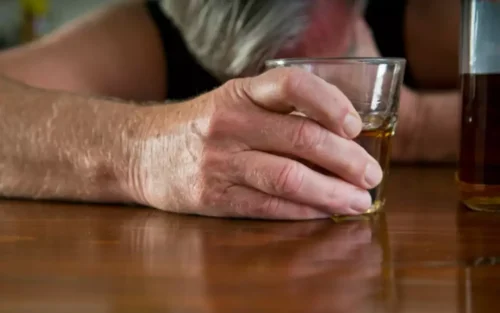All About Alcoholic Rage Syndrome: The Angry Drunk Phenomenon and How To Get Past Alcoholic Rage

If drinking causes a blackout, you may not even remember being aggressive unless someone reminds you about it. By perpetuating such behavior, people can end up damaging meaningful relationships — yet another effect of alcohol-based aggression. An aggressive drunk may make poor decisions that lead to worse scenarios. Since your judgment becomes clouded when you’re intoxicated, a simple misunderstanding can quickly turn into a bar fight. Furthermore, an angry drunk may not feel like consequences matter, making it seem like a good idea from their perspective to create or partake in a dangerous situation. No matter the reasons behind feeling anger when drinking alcohol, such behavior can be harmful.
Trauma Induced Addiction in Women
An increase in anger after trauma and the use of alcohol to cope with PTSD symptoms were stronger predictors of physically aggressive or violent acts than a lifetime diagnosis of PTSD without anger. One study found that chronic alcoholism and anger alcohol use decreases the function in the prefrontal cortex, which plays a key role in impulse control. A 2015 study published in the Journal of Substance Abuse Treatment explored the connection between anger and alcohol use.

Why Is Medication for AUD Underutilized?
Ryan offered a more extreme example of this type of interaction. In his case, he was already predisposed to anger arousal before he had his first drink. Drinking cocktails that include energy drinks should be considered a possible factor for aggressive behavior as well. Researchers surveyed 175 young adults who mixed alcohol with caffeinated energy drinks about their verbal and physical aggression in bar conflicts. Results showed enough escalation in people consuming these drinks to label the beverages a "potential risk" to increased hostility. According to a review from 2017, alcohol is more likely to cause personality shifts related to negative emotions, but that doesn’t mean anger is the most common emotional experience while drinking.
Disinhibition, alcohol, and rage

Essentially, drinking makes us less likely to withhold our reactions when we’re angry or annoyed. Specifically, it found that problematic drinkers may be more likely to attend to aggressogenic stimuli while intoxicated, and that is, they were more likely to experience certain cues as aggressive. In addition, the economic issues could be caused by alcohol addiction. If you are angry about your pocketbook, look at what is happening in your life. Get into the best alcohol treatment center to overcome the addiction starting today.
- The key to dealing with alcohol dependency in the family is staying focused on the situation as it exists today.
- Violence can occur in marriages, long-term partnerships, and dating relationships.
- They don’t feel good about themselves, and they don’t believe in themselves either.
- One way to have a bit less is to alternate alcoholic drinks with a soft drink or water.
- This article discusses some of the facts behind the stereotype of the "angry drunk" and explores the connection between anger and alcohol.
- Additionally, this information should also be taught in schools to expand their understanding and hopefully reduce the prevalence of alcohol-related aggression.
- If you are concerned that you or someone you care about has a problem with alcohol there is a lot of help available.

The PFC region of the brain is where we make judgment calls about potential behavior before acting on it. When alcohol impairs this area, a person may be more likely to behave in a way they wouldn’t while sober, including getting confrontational (2). The FHE Health team is committed to providing accurate information that adheres to the highest standards of writing. This is part of our ongoing commitment to ensure FHE Health is trusted as a leader in mental health and addiction care. By Buddy TBuddy T is a writer and founding member of the Online Al-Anon Outreach Committee with decades of experience writing about alcoholism. Because he is a member of a support group that stresses the importance of anonymity at the public level, he does not use his photograph or his real name on this website.
They completed surveys assessing their endorsement of traditional masculine norms, use of thought suppression, and both trait and alcohol-related aggression. It was found that thought suppression mediated the association between the toughness https://ecosoberhouse.com/ masculine norm and alcohol-related aggression. Another study of 249 heavy drinkers similarly found that alcohol intoxication predicted higher levels of IPV in those who reported low psychological flexibility (Grom et al., 2021).
- Our daily research-backed readings teach you the neuroscience of alcohol, and our in-app Toolkit provides the resources and activities you need to navigate each challenge.
- Alcohol’s ability to temporarily reduce anxiety can also intensify the urge to act on impulse.
- Alcohol use disorder includes a level of drinking that's sometimes called alcoholism.
- Relapse is prevalent, with almost sixty percent of people having one major episode a year after completing treatment.
- It can have a major impact on their family members’ quality of life and even be a detriment to the healthy development of any children they have.
- For example, if a person goes into a drinking experience with the expectation of alcohol helping them pick a fight with a partner later, that’s then likely to happen.

Individualized, evidence based treatment, to fit your needs.

Social factors of alcohol and rage
- An earlier study found that alcohol use enhanced aggression primarily among individuals who showed a heightened disposition for such behavior (Eckhardt and Crane, 2008).
- People with alcohol addiction often feel out of control, leading to feelings of shame, frustration, or depression, which can manifest as anger.
- Alcohol increases our brain’s production of dopamine, though, at a higher rate than we can achieve naturally.
- Alcohol effects the prefrontal cortex of the brain, the region that moderates things like decision-making.
- Increasingly, research offers answers to determine this interaction.

